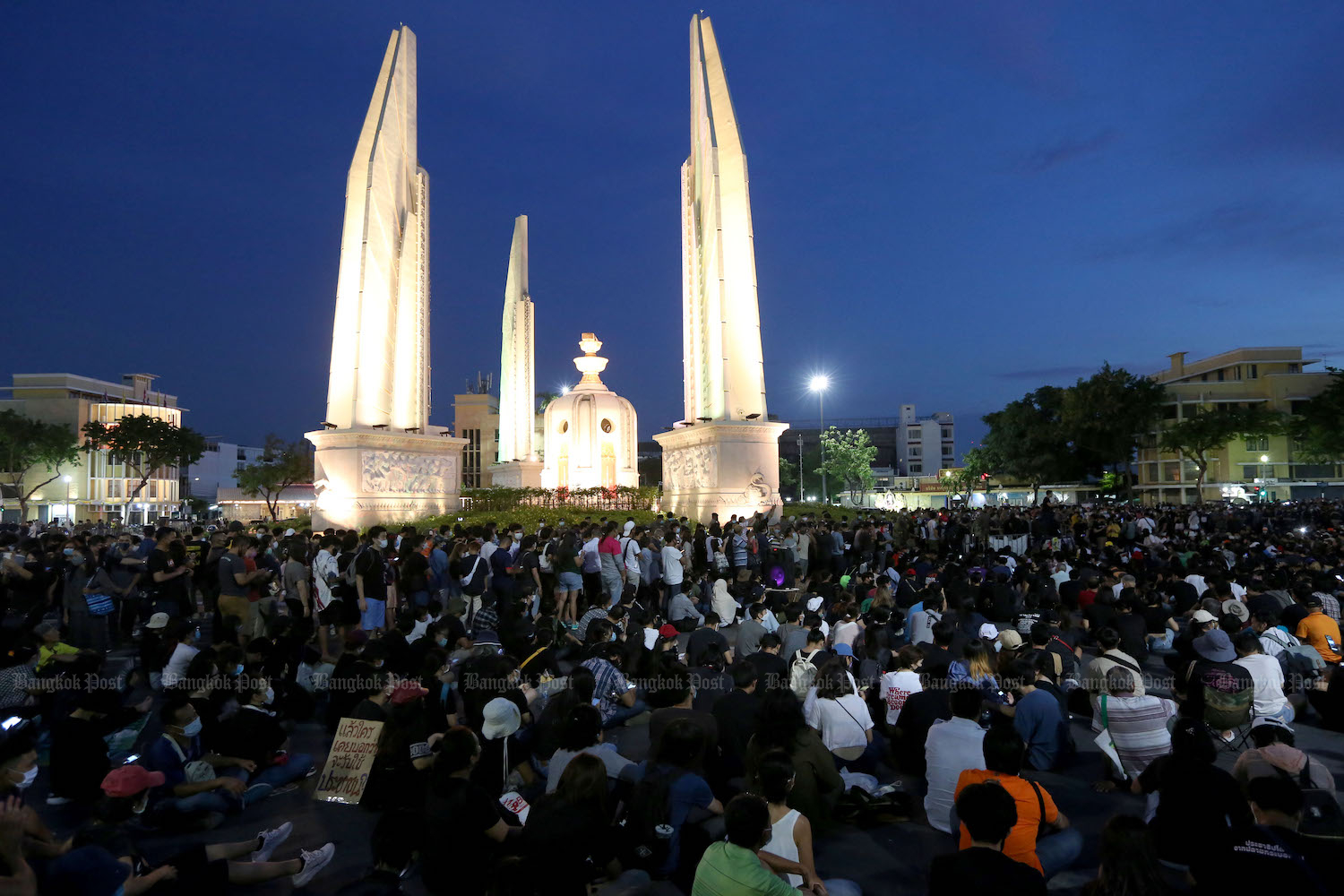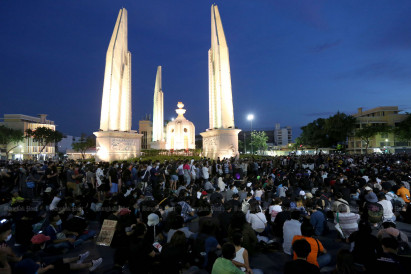Rights group calls for authorities to drop charges against under-18s

More than 200 children are facing serious criminal charges, including sedition, for their role in the largely peaceful pro-democracy protests that began in 2020, Amnesty International said on Wednesday.
Youth-led demonstrations calling for political change and reform to the monarchy drew tens of thousands onto the streets of Bangkok at their peak in late 2020.
Amnesty accused Thai authorities of having “arrested, prosecuted, surveilled and intimidated” child protesters for taking part, in a report calling for charges to be dropped against under-18s.
“Children with their whole lives ahead of them now face severe repercussions merely for participating in peaceful protests,” said Chanatip Tatiyakaroonwong a researcher with Amnesty International Thailand.
Nearly 300 under-18s have faced criminal charges related to the protests, the human rights campaign group said, and more than 200 cases are still active.
Most were accused of violating rules restricting public gatherings imposed during the Covid-19 pandemic.
But at least 17 minors are facing accusations of insulting the monarchy, which can carry long prison terms.
Under Section 112 of the Criminal Code, the lese-majeste law, insulting the monarchy can carry a jail sentence of up to 15 years per charge.
A number of people charged with lese-majeste have been detained pending trial, some for months, which has prompted two young women to go on a hunger strike to demand the detainees’ release on bail.
According to statistics compiled by Thai Lawyers for Human Rights (TLHR), at least 1,888 people have faced charges related to political participation since the beginning of the Free Youth protests in July 2020 until 31 December 2022. Among them are 283 children under 18.
The youngest child arrested during a protest was 11 years old, Amnesty said, while in another case police reportedly used cable ties to restrain a 12-year-old in July 2021.
Minors told researchers that as well as following them, authorities had also put pressure on their teachers and parents to discourage them from participating in protests.
“In addition to charges, some child protesters risk facing the added penalty of being disowned or abused by their own parents, due to the pressure put on them by authorities,” Ms Chanatip said.
In some cases this led to family arguments and even physical abuse and homelessness, the report said.
Amnesty urged Thai authorities to drop charges against peaceful child protesters, saying they should be free to protest peacefully without legal consequences holding them back.

